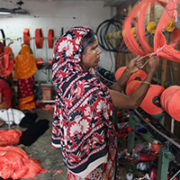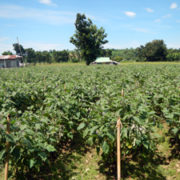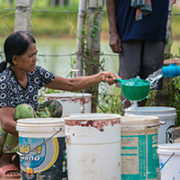Archive | December, 2016
Gender
 Economics, Education
Economics, Education
 Industry and trade
Industry and trade
 Agriculture and natural resources
Agriculture and natural resources
 Water
Water

Inclusive development: can trade be good for women?

The United Nations Sustainable Development Goals (SDGs) highlight the need to achieve gender equality and to empower women and girls. Development that is truly inclusive clearly requires special attention to outcomes affecting more than half of the world’s population—yet historically, a group that has seen discrimination in law and fact over a long period.
Benefits of education and training for SMEs in Asia

The importance of small and medium-sized enterprises (SMEs) to economies in Asia is well known. They account for over 95% of all businesses, a third to half of aggregate output, and the majority of enterprise employment (Vandenberg, Chantapacdepong, and Yoshino 2016). We also know that SMEs do not have an easy life. They struggle to get established, face a higher failure rate than large firms, and lack access to key inputs such as finance. Finding ways to increase their survival rate and growth is important for expanding private sector activity in Asia’s developing economies. Sustaining enterprises requires that they are competitive; competitiveness, in turn, is based on productivity.
Still time to reconnect trade policy and SDGs

In 2002, “trade for development” was a core topic of the Millennium Development Goals. Fifteen years later, trade is at the periphery of the Sustainable Development Goals (SDGs). Three main reasons explain this rapid decline. First, trade negotiators did their best to obscure the Doha Round and bilateral trade negotiations in byzantine and sterile debates. Second, business stopped to pay attention to trade policy because firms turned to a form of liberalization tailor-made for their own global value chains: they traded tariff cuts of interest to them in exchange of investments in the opening countries.
Promoting the sustainable development goals with “win–win” regulations in food and agricultural trade

While the Sustainable Development Goals (SDGs) do not explicitly mention trade, freer trade does support at least two of them: SDG 8 (Promote inclusive and sustainable economic growth, employment, and decent work for all) and SDG 12 (Ensure sustainable consumption and production patterns) are possible through the benefits of the movement of goods and services globally. Dating back to the work of Adam Smith and David Ricardo, evidence suggests that trade is beneficial and that different types of countries can gain from trade. The gains come from efficient production and expansion of consumption opportunities.
The water challenge: international trade to the rescue

In many parts of the world, water availability is in decline and its quality is deteriorating. According to the World Bank, water scarcity, intensified by climate change, could come at a high price for some regions, costing as much as 6 percent of their gross domestic product. Tackling the water challenge is crucial to unlocking poverty eradication, prosperity, ecosystems preservation, and gender equality. As such, water security is a fundamental element of a sustainable development agenda. The United Nations Sustainable Development Goals recognized this by introducing a dedicated water goal (“SDG 6”) that seeks to “ensure availability and sustainable management of water and sanitation for all.”


Search
Subscribe / Connect to Asia Pathways
Subjects
- Agriculture and natural resources
- Blog
- Capacity development
- Climate change
- Economics
- Education
- Energy
- Environment
- Finance sector development
- Gender
- Governance and public sector management
- Health
- Industry and trade
- Information and Communications Technology
- Infrastructure
- Miscellaneous
- Population
- Poverty
- Private sector development
- Regional cooperation and integration
- Sanitation
- Social development and protection
- Transport
- Uncategorized
- Urban development
- Video Blog
- Water
Recent Posts
- Artificial intelligence: A new driver for inclusive growth and development?
- Increasing trust in cross-border e-commerce and artificial intelligence
- Enhancing access to maternal and newborn healthcare in developing Asia
- Can electric vehicles lead the way to a sustainable future?
- Mitigating climate-related sovereign risk to accelerate action on the climate emergency




Recent Comments